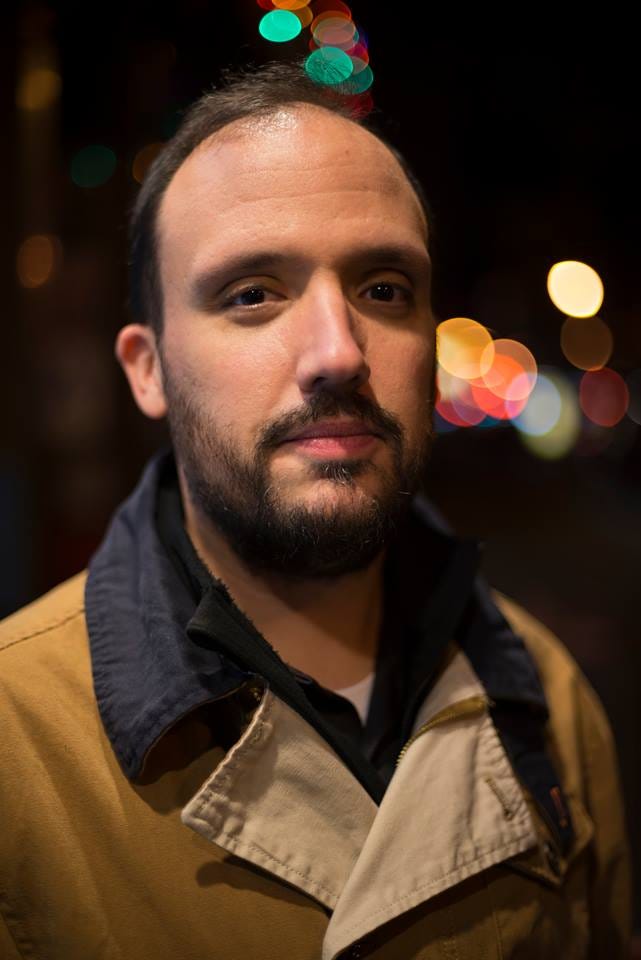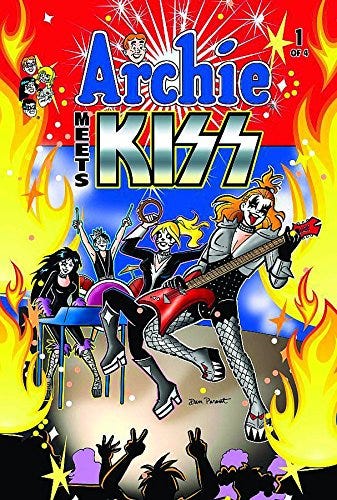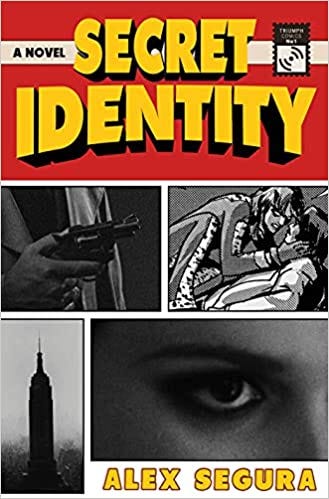Five Questions with Author Alex Segura
He previews his next book, a "spiritual sequel" to "Secret Identity" for us
Alex Segura’s Secret Identity, a noir detective story set in the world of the 1970s comic industry, is one of my favorite books of the year, so I was really happy when he agreed to talk with me for a Q&A.
Alex grew up in Miami reading comic books and worked at newspapers in his hometown after graduating from college. From there, he started working at D.C. Comics in New York, which gave him the chance to meet people whose work he had admired for years.
But, Alex said, “when your hobbies become your job, you start to look for new hobbies.” He began to devour crime fiction — books by Laura Lipmann, George Pelecanos and Walter Mosely — before writing his own noir series featuring private investigator Pete Fernandez.
In addition to his crime novels, Alex has written a Star Wars novel, Archie and The Archies comics, and an original graphic novel The Black Ghost. He also wrote a scripted podcast series, Lethal Lit, about a murderer whose crimes appear to be ripped from the pages of famous books.
Alex was kind enough to chat with me about all his various projects. Our conversation has been edited and condensed for clarity.
You clearly have a love for graphic novels and comic books. Where did it come from?
My first comic was an Archie comic. It was a double digest my mom bought me at the grocery store, probably to quiet me up. I think I was five or six and it became a doorway to reading.
I wanted to be an artist as a kid. I was always drawing and doodling. It sounds so simplistic, but I loved the blending of words and pictures. It really spoke to me as a kid and it still does know. I’m always reading novels and I’m always reading comics.
I graduated from Archie to superheroes and then to more literary stuff — not that superheroes aren’t literary — but other genres in comic books.
My dad read comics when he was a kid, so he had some knowledge, but it was very much my thing. I’d go to the comic shop every week. Whenever I had a couple of dollars to rub together, I’d buy some comics and explore this wonderful medium.
You’ve written comics and crime fiction. Secret Identity combines those and even includes pages of a comic book, “The Legendary Lynx” the characters are developing. How did you make that happen?
The idea for having comic sequences in Secret Identity came to me like 20 years ago. I was in college, reading The Amazing Adventures of Kavalier and Clay, which I love. It’s such a fantastic book. It felt for the first time that someone was treating comics with a sense of gravitas, giving them a sense of importance. But I wanted to see those comics. Eventually they did release them, but for whatever reason this bizarre idea — I’m going to write a book with comic sequences in it — stuck in my brain.
As soon as my protagonist Carmen began appearing, I realized I needed those pieces to compliment the prose. So, I wrote the outline and noted the moments where it would work to have a comic sequence. Then, I worked with Sandy Jarrell, who’s an amazing artist. I love that his work doesn’t look like anyone else’s and it evokes the ‘70s comic books.
A lot of time with comics, writers will write a full script that breaks it down very specifically, panel by panel. Or there’s the Marvel style, when the writer sends the artist a rough outline. You basically give the keys of the car to the artist. I like working that way because it lets the artist detail the camera angles, the perspective. So, I’d send Sandy a rough paragraph or two saying “this will be a three-page sequence showing the Lethal Lynx jumping from rooftop to rooftop. She’ll throw a star, hit the target, interrogate him and we’ll end with a close shot of the Lynx being surprised.”
I’d include the big emotional beats and then Sandy would do a draft to give me a sense of how the panels would break down. I’d give him notes and when he was done, I’d write the dialogue and captions.
How is writing for audio different than writing books or comics?
It’s so different. With comics, you’re writing to the visual. You write to the artists who determine how the reader experiences the story. With podcasts, you’re writing to audio, and you need signifiers that you wouldn’t need in prose or comics.
Your need a door slam sound effect to let people know that a door is closing and someone is coming in. There’s a lot more ‘Hi, character, how are you’ to recognize another character is there and the listener is aware. It’s all about sound. You don’t have the fallback of the visuals or being able to flip back a few pages to re-read what you missed.
I’m really proud of “Lethal Lit” — the mystery, the hook and the twists at the end. I thought they played out well. And I loved playing in a space that was “Twin Peaks” meets early “Buffy” meets “90210.”
Can you preview what you’re working on now?
I’m working on a spiritual sequel of sorts to Secret Identity. It will be set in the modern day and Carmen will be a part of it. She’s not the protagonist but she’ll play a key role.
While Secret Identity was set a time when comics were an insular industry and creators weren’t attuned to what their rights are, this is the other side of the coin. It talks about fandom — what it means to be a fan, what your responsibilities are.
We meet a protagonist who is comics-adjacent. She’s worked in comics but has found a creative career elsewhere. She gets an assignment from this new company that’s relaunching an obscure 1970s character, the Legendary Lynx. She loves the character, but as she starts doing work for this sketch production company, she starts to realize there’s more to the origins of the character than she thought and starts to question ‘should I be part of this reboot if this is the background of the character?’”
Lastly, any books you want to recommend?
Kismet by Amina Akhtar is a fantastic thriller, a takedown of the Sedona wellness industry. Like A Sister by Kellye Garret is fantastic, it’s just a really voicey suspense novel. Don’t Know Tough is the football noir that I hoped to write someday, but don’t have to now because it’s so good.
Pretti Chhibber wrote a fun middle grade Spiderman novel, Spiderman’s Social Dilemma, which was so fun to read. I grew up reading Spiderman and she nails Peter Parker’s voice.
Thanks again to Alex for speaking with me. You can check out his books here, and follow him on Facebook, Twitter and Instagram.
What to Read If is a free weekly book recommendation newsletter. Need a rec? Want to gush about a book? Reply to this email, leave a comment or find me on Twitter @elizabethheld.
If you’re reading this on Substack or were forwarded this email, and you’d like to subscribe, click the button below.
Disclosure: I am an affiliate of Bookshop.org and I will earn a commission if you click through and make a purchase.







“When your hobbies become your job, you look for new hobbies” has me shook. Great read.
Thanks for having me!